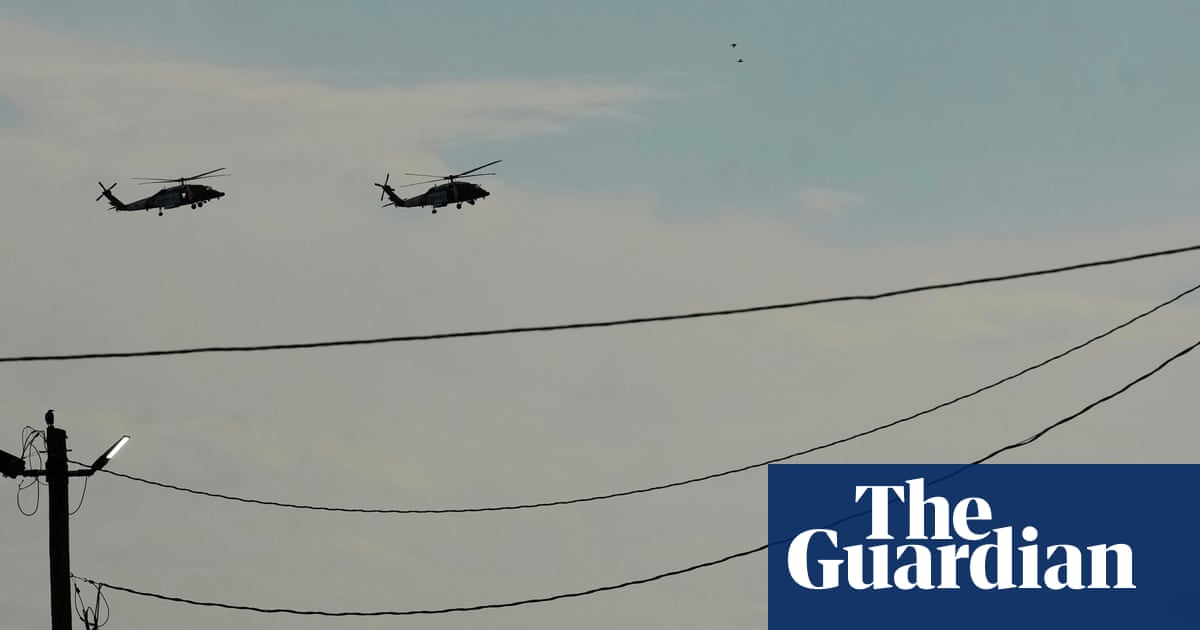Nineteen in immigration processing unit striking for access to medical and mental health care, among other demands
Nineteen people detained at an immigration detention center that the Trump administration opened within Louisiana’s infamous Angola prison were entering their fifth day on hunger strike on Sunday, according to advocacy groups.
Those striking at the Immigration and Customs Enforcement (Ice) processing center set up at Angola’s former Camp J are demanding access to medical and mental health care – including prescription medications, according to the Southeast Dignity Not Detention Coalition (SEDND) and the National Immigration Project (NIPNLG).
A statement from both groups says that detainees at the facility the Trump administration has dubbed the Louisiana Lockup are also asking for basic necessities such as toilet paper, hygiene products, and clean drinking water. Further, they seek visitation from Ice officers to raise concerns about conditions inside the facility.
‘The dungeon’ at Louisiana’s notorious prison reopens as Ice detention centerRead more
People with chronic health conditions are not receiving prescribed medications, according to SEDND and NIPNLG’s statement, and there is no access to services such as a law library or religious programming, which are required under federal detention standards.
Angola’s official name is the Louisiana state penitentiary. The strike there comes after Louisiana’s governor, Jeff Landry, declared a state emergency in July to address what he said is a lack of capacity to house offenders at the prison.
Advocates say that the reopening of what was formerly known as Camp J for immigration detentions and deportations has subjected detainees to unsafe and degrading conditions.
“The real emergency is what’s happening inside: people are being denied life-saving medication, and some may die as a result,” SEDND said in a statement. “These hunger strikers are bravely speaking out, risking retaliation from Camp J guards and putting their own lives on the line to ensure those around them receive the medical care they need.”
Louisiana for now holds the second largest population of immigrant detainees in the country after Texas. A small airport in Alexandria has become the nation’s leading departure point for deportation flights during Donald Trump’s second presidency.
The Louisiana state penitentiary has a history of being used for purposes beside housing state prisoners. In 2022, dozens of juvenile detainees were moved to a renovated former death row facility on the prison grounds, which led to litigation from youth advocates.
Reports from inside described abuse by guards, lack of education, and extended isolation. A judge eventually ordered the youths transferred, and called the conditions “intolerable”. Camp J itself was also briefly used in 2020 to house pre-trial detainees with Covid-19.
Trump’s deportation hub: inside the ‘black hole’ where immigrants disappearRead more
Camp J, once notorious enough to be shut down in 2018, has now been rebranded. Beside Louisiana Lockup, that particular facility is now also referred to as Camp 57, a homage to Landry, the state’s 57th governor. Advocates warn that what made Camp J so brutal before, including the guard culture of abuse, violence and desperation, still remains intact.
“The fact that Angola cannot provide even the most basic medical care and supplies is yet another reason this facility should be shut down,” said Bridget Pranzatelli of the National Immigration Project.
The US Department of Homeland Security did not immediately respond to a request for comment about the hunger strike. Homeland security has previously published a list of more than 50 Ice detainees it said were already being held at the Angola facility and who allegedly have prior criminal convictions for serious charges.

https://www.theguardian.com/us-news/2025/sep/21/ice-detainee-hunger-strike-louisiana

